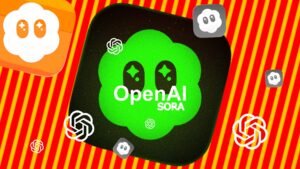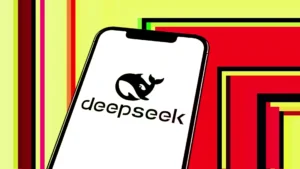
The Unveiling of a New Era
The realm of Natural Language Processing (NLP) has traditionally fixated its attention on widely spoken languages such as English and Russian. Nonetheless, an increasingly fervent interest is now brewing in the realm of training AI models using African languages, propelling us ever closer to the dawn of an African language chatbot revolution.
At the heart of chatbot research, English’s dominance can be succinctly attributed to the sheer abundance of data. An overwhelming majority of online textual content is etched in English, thus bestowing upon it the distinction of being the most colossal and easily accessible dataset, a veritable goldmine for honing language models. Similarly, various other prominent languages boast significant repositories of data, meticulously amassed to further the frontiers of research.
The African Challenge
For the intrepid AI researchers, African languages emerge as a formidable challenge due to the paucity of available training data. The intricate tapestry of linguistic diversity that blankets many African nations merely compounds this challenge. Consider, for instance, the nation of South Africa, bedecked with 11 official spoken languages, while the grand tapestry of the entire continent is woven with around 2000 linguistic strands. Yet, the pursuit of crafting digital content in African languages is shackled by the dearth of rudimentary tools such as dictionaries, spell checkers, and keyboards, stymying progress at every turn.
A relentless endeavor is currently unfurling its wings to augment the reservoir of African language data by transmuting archival linguistic repositories into a digital form, thereby liberating these datasets from their cryptic confines. As the tide of transformation sweeps in, these datasets shall be proffered as a boon to content creators, curators, and translators alike, kindling a collective drive towards this noble cause.
Multilingual Pre-Trained Language Models
In a bid to surmount the imposing citadel of limited training data, enterprising researchers are now embarking upon an odyssey to harness the potential of multilingual pre-trained language models (mPLMs). These visionary constructs amass a treasury of versatile linguistic knowledge during their prelude, enabling them to decipher the fundamental architecture and nuances of related languages sans the prerequisite of copious training datasets. It is noteworthy that the confluence of language similarities has been unmasked as an elixir that amplifies model efficacy, setting the stage for a paradigm shift in language research.
The annals of recent history chronicle the advent of an mPLM christened as SERENGETI, that encompasses an astonishing array of 517 African languages and their sundry dialects. This monumental leap forward eclipses prior models that paled in comparison, having merely encompassed a meager 31 African languages.
Paving the Way for African Language Chatbots
While the road ahead remains strewn with its share of challenges, the burgeoning advancement of African language chatbots within the landscape of NLP research paints a portrait of impending triumph. The realm of AI-powered conversational agents, bedecked in the rich tapestry of African languages, stands on the precipice of realization, ready to herald a new epoch of linguistic interaction.
In summation, the crucible of NLP is undergoing a profound transformation, one that is unfolding as African languages ascend from obscurity to claim their rightful place in the pantheon of AI-powered linguistic innovation.







Welcome to our comments section!
We value your feedback and encourage you to share your thoughts in the comment section. Let’s keep the conversation meaningful, respectful, and inclusive.
For the best user experience, commenting is closed after an article has been posted for seven days. Please ensure your comments align with our Community Guidelines.